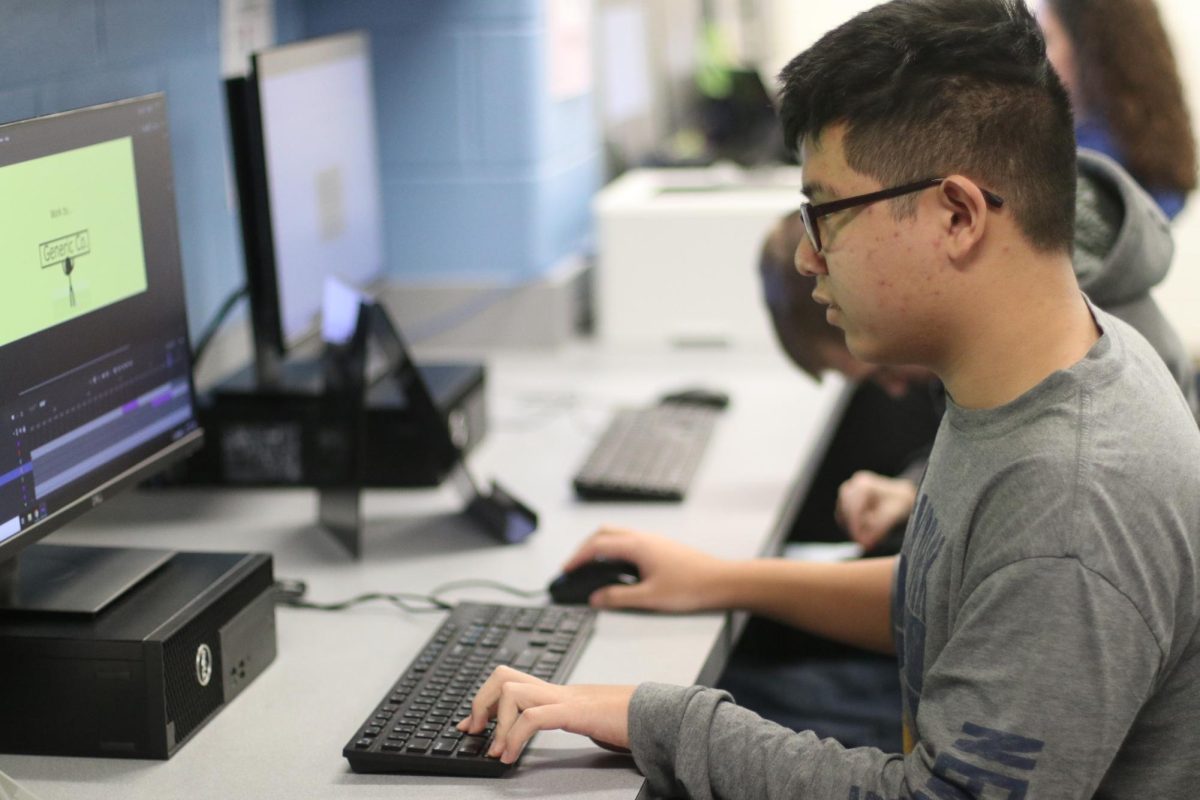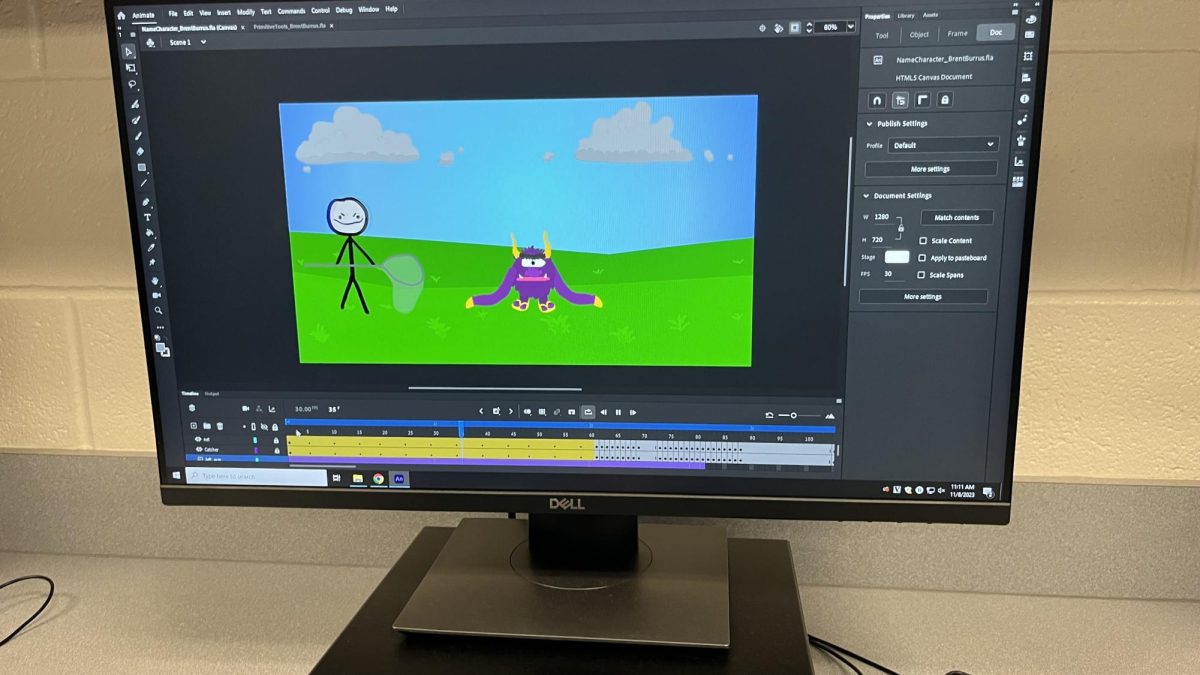As she turns over in bed at night, she grimaces at the pain she feels from her latest operation. Thoughts of self pity and despair swirl in her mind. “Why me?” she asks herself, seeing her friends enjoying their lives, not having to worry about overexerting themselves.
With an unknowing glance, junior Caroline Colliver strikes the eye as an average teenager: laughing with friends, involved in sports and taking family trips. Many people would not assume she is batting a chronic illness each day.
“Crohn’s disease is basically a digestive disease where your immune system fights against itself,” junior Caroline Colliver said. “The type I have is more rare and is considered the ‘autoimmune’ disease, meaning my colon is constantly in attack mode.”
Colliver was diagnosed with Crohn’s disease at the beginning of her second grade year. After months of losing weight and becoming lethargic, the doctors tested her for numerous types of cancers and other illnesses.
“I have what my gastroenterologist refers to as a penetrating disease, which is why I get fistulas,” Colliver said. “Fistulas are basically a canal that forms, sometimes between the intestines, that gets infected and flares up.”
Colliver has spent countless hours in the hospital and/or being on required bedrest. This has called for numerous absences leading to stress about school work and always feeling behind.
“I typically am more tired than the average person,” Colliver said. “I have to give my body a lot of rest, which can be stressful when you’re as active in a sport as I am.”
In the 2016-2017 school year, Colliver missed over half of her spring season of tennis and that really took a toll on her mental and physical health. The body, especially in chronic cases, tends not to heal well with poor mental health.
“I remember being so angry because I wanted to be farther in my skill-set in tennis than I was at the time of my flare up,” Colliver said. “My feelings of depression were the worst they’d ever been and I was to the point of giving up because I didn’t see a point if I couldn’t play.”
Because of Crohn’s disease, Colliver is more susceptible to other diseases later in life such as shingles, fibromyalgia and spells of inflammation. The numerous immunosuppressant shots cause a weaker immune system, making it easier for Crohn’s patients to attract other viruses unrelated to their disease.
“In retrospect to the depression, I realized that tennis isn’t the only good thing in my life,” Colliver said. “I have a beautifully supportive family and great friends who do their absolute best to make sure I’m comfortable or doing well.”
Colliver often feels a sense of guilt of how much her disease affects her whole family. In the past, she has tried to suppress her symptoms so her parents would not have to slow their lives down for her.
“When anyone in a family has a chronic illness, it definitely affects everyone,” Caroline’s mother Christi Colliver said. “We developed a dynamic early on that we are a team. No matter who is the one down, we will work as a unit to lift them back up.”
In addition to the emotional and physical effects of her Crohn’s disease, Colliver often has to miss out on social events due to overexertion. This brings its own set of struggles, where the boundary of her childhood plans clash with the effects of her disease.
“I think the biggest thing, as a parent, that hurts my heart is that Caroline can’t always go-go-go,” Colliver’s mother said. “I can’t even count how many camping trips, birthday parties, tennis tournaments and outings with friends she’s had to miss because of her Crohn’s.”
In December of 2016, a cyst formed on Colliver’s lower back, requiring surgery. Although the operation went well, the healing process was prolonged for eight to nine months due to her lacking immune system.
“I literally spent all of Christmas break last year on my stomach,” Colliver said. “I couldn’t sit up or even shower, and I also had to go to wound care once a week for eight months for them to doctor my wound.”
In May of 2017 the wound was seemingly healed, but in the blink of an eye, it opened up again, and Colliver had to repeat the healing process over again. In the scheme of just a couple of years, Colliver has had 10-12 fistulas and eight to nine surgeries due to her Crohn’s.
“I remember, last year, being constantly worried about flaring up again,” Colliver said. “The problem with Crohn’s is that you never know when it’s gonna happen. You have to live day by day and that can make the mind very anxious.”
A fact that many overlook is that the effects of chronic illnesses tend to remain internal. Thus, the outside appearance of someone battling a disease does not always make it so obvious.
“People with chronic illnesses, they’re sick, I promise you,” Colliver said. “This isn’t said to be insensitive, but the cliche remarks like ‘it’ll get better soon’ tend to get old really fast. The truth of the matter is I’m not going to ‘get better’ and I think a lot of people don’t realize that.”
























Joni Nilson • Feb 22, 2018 at 8:29 pm
Excellent article highlighting my beautiful, strong, amazing niece! Love you so much Caroline!!